Thanks so much for talking with us at rotoscopers.com. Why don’t you introduce yourself and tell us what inspired you to become a sound editor?
The true story is I went to film school in the ‘80s and doing sound was the last thing I thought I would do because I would have panic attacks when I would do sound. It was a technical thing we’d do at the end of the movie and that’s it.
But I love story and character and that’s why I went to film school and that’s why I love working on movies and sound is all part of that. I came out of film school and I wanted to be a picture editor so I assistant edited. Then a friend of mine called up and said, ‘Midge they need new guys who can cut 16mm, effects and dialogue, so I lowered myself to take a sound job because I needed the money.
And so now I’m a sound effects editor and I’m thinking about how I feel about story, character and plot points as it comes to sound. It intrigued me and then one job led to another and suddenly there was something very exciting about sound. I found myself feeling I was born to do sound. You can honestly do so much with sound. The big directors that I have in the movie they all say sound is essential in their movie and yet honestly usually the whole production sound budget is usually something like 1%. So you get so much production value for low cost. That’s how it all started.
As a professor at USC, I try to speak to the students to give them a leg up that I felt like I didn’t have. And then in the early 2000s when I went up for a tenured position I thought ‘I’m going to make this movie’ but there was no fair use and I knew that I needed to play clips. Because that’s the whole point. I’m sorry. I’ve tried reading books on sound and they don’t make any sense to me.
And then in 2010, Bobette Buster, my producing partner, approached me because she had met Gary Rydstrom, Academy Award-winning sound editor, and he said, ‘why hasn’t this movie been done?’
How do you decide when you are getting into sound work what your focus is going to be? Whether you are going to work in the foley, ADR, mixing? Do you just do a little bit of everything or do people have a specialty?
Now, because you can do so much with analog, it depends on who you start with, who you apprentice for. Foley is a different beast. Sometimes it comes from acting or something physical. I got into it from an editing background A friend got me into effects editing and then I learned to dialogue edit. I like being in my edit room where I can close my door and do my work. I didn’t care about being in the mixture so much. There’s a lot of personalities that like to be with the directors and producers. Especially back in the ‘80s it was such a guy thing that it got uncomfortable
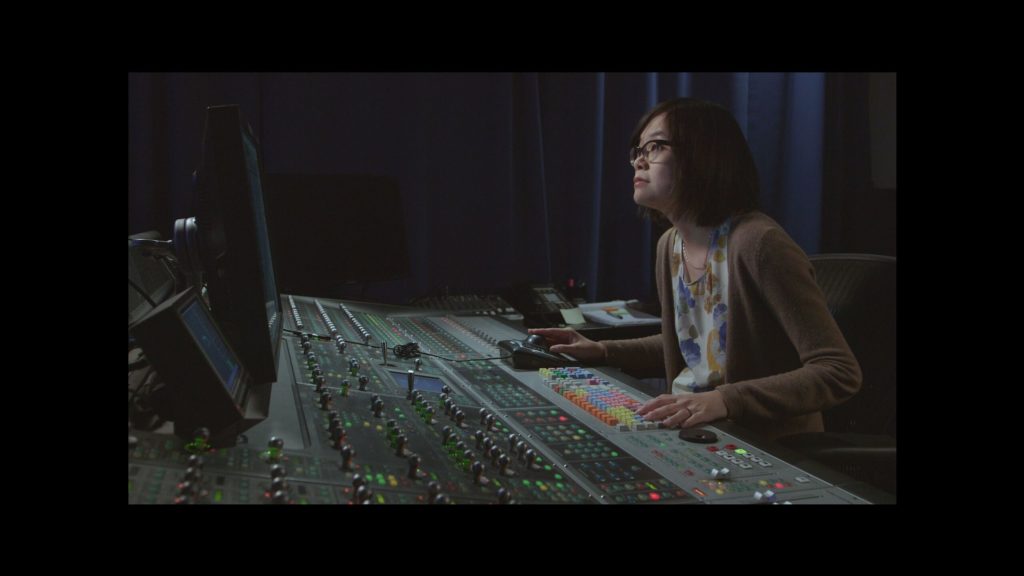
You had a section about that in the film about females working in sound. I wondered do you feel like that is something that has improved or do you feel like it is still difficult to get into the field?
I think it is definitely hasn’t improved as far as numbers, but it has improved as awareness. A lot of women in sound end up cutting dialogue and foley, but it was always the effects editors who were in charge leading the women. That hasn’t changed that much. I used to think it was nefarious before I got into the business but that’s not what happens. In reality, you work long days and sometimes it’s easier to pick people they feel more comfortable with or have experience with. So you have to have more of a consciousness about it.
Of course you have incredible female sound designers, but what still happens a lot is you will have women put in charge of projects deemed ‘women sounds’ or ‘children sounds,’ which is really kind of silly.
You did a lot of these big action movies, a couple by Michael Bay. That has to be a challenge to get the sound right for these big action movies?
Yeah that’s why it is kind of funny. During the ‘90s at one point I said, ‘I don’t even like these movies.’ I thought they were sexist, violent, racist and that’s when I started to turn to teaching more.
The first union film I was on was at Paramount was Days of Thunder and I only had the bad guys car whenever it would move and it was so fun! Here I am 5’1” and making the loud sounds of the car. That was really cool. When I was a little kid, I really wanted to be a race car driver, so this was pretty close.
So those jobs are kind of fun. You’re learning on the job. We’re all learning as we go along and people help each other out. That’s what I love about what I do. Not only do I love sound but I love the people who do sound. A lot of people in the movie are close friends that I’ve known for a long time. We all help each other out.
On Armageddon, I had the scene where Bruce Willis sees his family come out of a big shuttle the first time and what does it sound like? Of course it would sound like nothing because there is no sound in space, so we kept it kind of old school and threatening and we ended up taking a cat sound and slowing it down. We were able to bring something new to life which was a lot of fun.
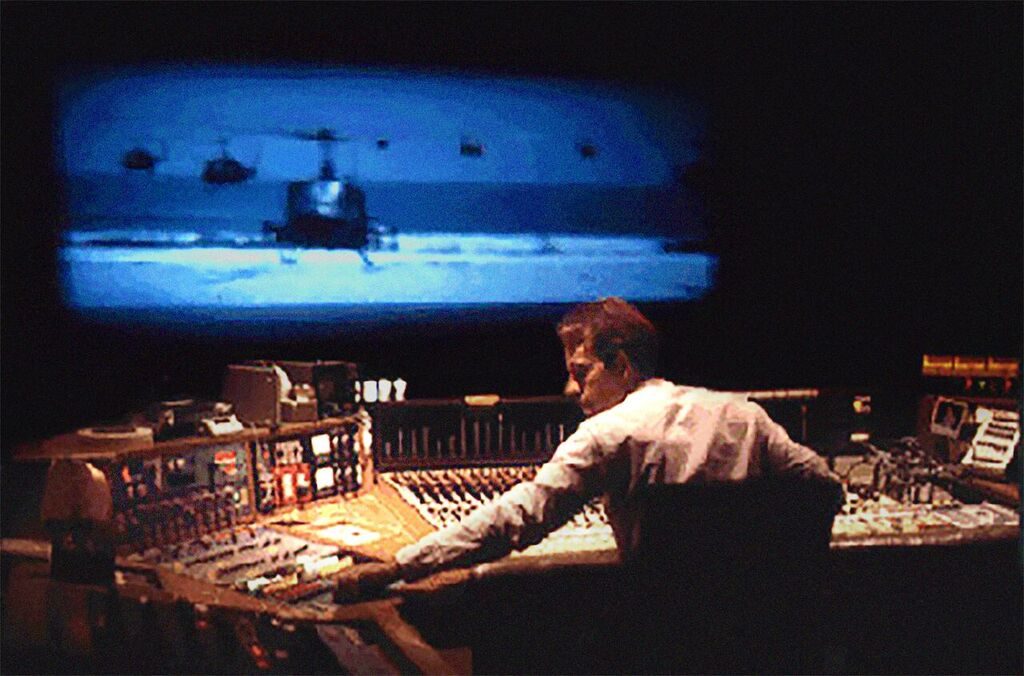
That does sound like fun. I have to admit I learned a lot from the documentary. I think you did a good job balancing history and talking about the different facets of the career. As a teacher you must have been cognizant that you wanted it to feel like a movie and not a lecture or textbook kind of thing?
Exactly and that was the challenge. It was hard to get all the information in and not make people tune out. Well, in my lectures I bring a bunch of Blu-rays with me because what I’m going to talk about involves those films and so I knew it could be fun that way. I try to get them to respond to the films because nobody can be wrong that way. If they felt something, it’s real. So just pulling them out and getting them involved is the best way to teach and inspire.
That’s cool! The biggest thing. I had no idea that Barbra Streisand was so influential.
Rachel, it was new information for her! She had no idea! Loan Allen, the senior VP of Dolby. The reason why he is senior VP is because he went to all the studios to promote their new service. He said to all the studio heads, ‘We’ve got this thing. The sound will be less noisy and it will be in stereo.’ And they all went, ‘That’s nice but we don’t really need it.’ So they say no and Barbra Streisand is doing A Star is Born and she says, ‘We want this,’ but she didn’t know it wasn’t already in place as an option.
So the studio listens to Barbra because she makes them money because she’s so powerful. Then later it would be included in Star Wars and the rest is history. But Barbara had no idea when I wrote her and she loves it!
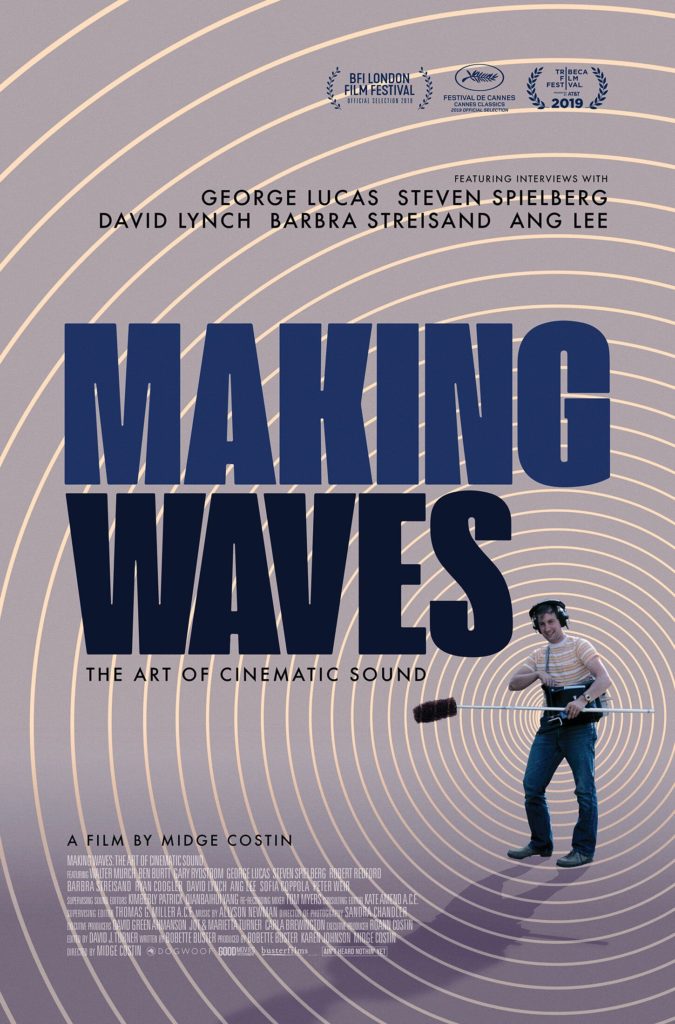
That’s really interesting. You have so many interviews in the documentary. Was there anyone you felt starstruck over?
Yes, David Lynch. I love Eraserhead, so I was really excited to talk to him but he was such a sweetheart. His movies are so dark, but I loved talking to him. Well and Barbra Streisand was beyond. That was amazing!
With all these people, we send them the questions in advance. Usually their handlers ask for them beforehand. So at Barbra Streisand’s house she opens the door and says, ‘Girls, girls who’s Midge and who’s Bobette?’ and I’m like, ‘Oh my gosh, she knows our names.’ Then she takes this thing that looks like a script and fans it in my face and says, ’27 pages of answers to your questions.’ I couldn’t believe it!
I also love Peter Weir and his films. I love Ang Lee. I feel with Ang Lee and Peter Weir their spirituality is so cool. They were all so great. It was such an honor to talk with them.
What would you recommend to someone who is interested in getting into the sound field do as first steps?
One thing is there are sound houses where they do post-production and I would try anything to work with them. Do anything and don’t ever say no to any job. Because people love to help out people they know, so someday they will be looking for someone and think, ‘This guy’s really nice maybe he or she could have the job?’ Don’t worry about bothering people and also study up on these people you want to know. And go to these Q and As and talk to them, get their cards. I usually leave my cards out for anyone who wants to get involved in sound so I can give them a leg up. Also go to school and try to learn the art of filmmaking. Make student films. Keep volunteering because sometimes you have to keep doing stuff for free until you are set. Don’t give up!
Making Waves is opening in LA and NYC October 25th and expanding to art houses all over the country in coming weeks.


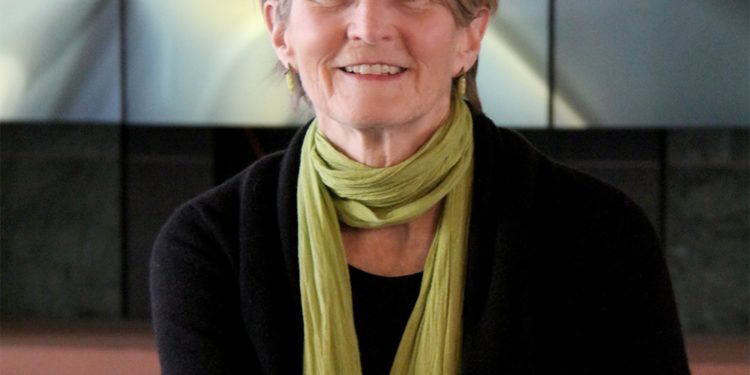

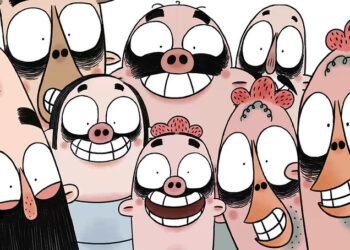

![[INTERVIEW] Director Stephen Anderson (Pixar’s ‘Monsters at Work’)](https://www.rotoscopers.com/wp-content/uploads/2021/07/animator-spotlight-stephen-350x250.jpg)
